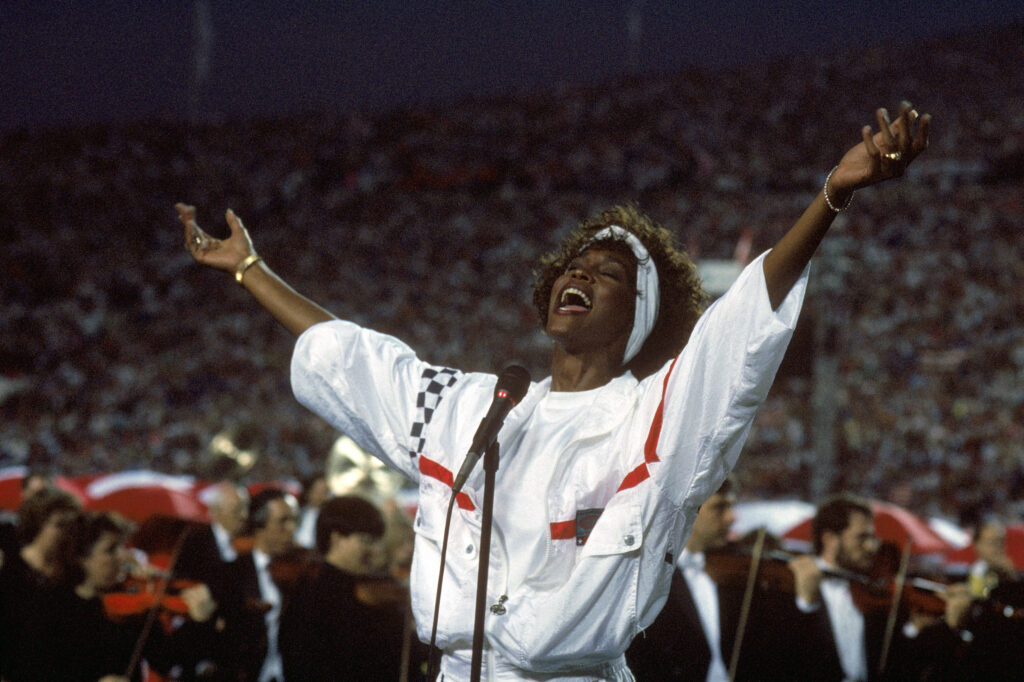The playing of national anthems before sporting events is a familiar sight for many, particularly in the United States. However, this tradition extends far beyond American borders. Across the globe, numerous countries observe the practice of honoring their national anthem during sporting competitions, creating a unique atmosphere of patriotism and unity. This article delves into the global traditions surrounding national anthems at sporting events, exploring their significance, variations, and impact on spectators.
This exploration will examine the prevalence of this tradition worldwide, highlighting diverse customs and protocols. We’ll also analyze the role of national anthems in fostering patriotism and unity among spectators, as well as their contribution to creating a sense of national pride during sporting competitions.
National Anthems at Sporting Events
The practice of playing national anthems before sporting events is widespread across various countries and continents. From international tournaments like the FIFA World Cup to local amateur games, the tradition holds significant cultural weight in many nations. While the specific protocols may differ, the underlying purpose remains consistent: to honor the nation and its people through a powerful musical symbol.
In some countries, the playing of the national anthem is mandatory before all sporting events, regardless of the level of competition. Others reserve this practice for major international tournaments or games involving national teams. Regardless of the context, the moment often carries a sense of solemnity and reverence as spectators stand in silence or sing along with their national anthem.
Global Traditions

The traditions surrounding national anthems at sporting events vary significantly across different cultures. In some countries, the anthem is played before the start of the game, while in others it may be performed during halftime or after a significant event within the match. Certain nations have specific rituals associated with the playing of the anthem, such as requiring athletes to stand at attention or face a designated flagpole.
For instance, in Japan, spectators often bow their heads respectfully during the national anthem, while in some European countries, it is customary for players from both teams to line up and face the flag during the performance. These diverse customs reflect the unique cultural contexts and historical influences that shape national identities and sporting traditions.
Patriotism and Unity
National anthems often serve as powerful symbols of patriotism and national unity. The act of singing or listening to one’s country’s anthem can evoke a strong sense of belonging and shared identity among spectators, regardless of their individual backgrounds or beliefs. This collective experience can foster a sense of camaraderie and support for the nation, particularly during sporting events where competition is fierce.
Furthermore, national anthems can help bridge social divides and promote a sense of unity within a country. By bringing people together under a common symbol of national pride, they can create a shared experience that transcends individual differences and fosters a sense of collective purpose.
National Pride

National anthems play a significant role in cultivating national pride among citizens. The music and lyrics often celebrate the nation’s history, achievements, and values, instilling a sense of admiration and respect for one’s country. This feeling of pride can be particularly strong during sporting events, where athletes represent their nation on an international stage.
When a team wins a competition, the playing of the national anthem amplifies the sense of victory and accomplishment, uniting citizens in celebration and reinforcing their belief in their nation’s capabilities. Conversely, even in defeat, the playing of the anthem can serve as a reminder of national resilience and determination, inspiring citizens to support their athletes and strive for future success.
Sporting Competitions
The presence of national anthems at sporting competitions adds another layer of significance to these events. It transforms them from mere contests of skill and athleticism into platforms for showcasing national identity and pride.
Do other countries sing national anthem before sporting events? The answer is a resounding yes! Many nations around the world incorporate this tradition into their sporting events, creating a unique atmosphere that blends competition with patriotism.
Do other countries play national anthem at sporting events? Absolutely! Playing the national anthem is a common practice in sporting events globally, serving as a symbol of respect for the participating nations and their athletes.
The playing of national anthems before sporting competitions can heighten the emotional intensity of these events, creating a sense of anticipation and excitement among spectators. It also serves as a reminder of the global nature of sport, bringing together people from different cultures and backgrounds under a shared banner of competition and camaraderie.
Conclusion
National anthems at sporting events are more than just musical performances; they are powerful symbols that embody national identity, patriotism, and unity. While traditions surrounding their playing may vary across countries, the underlying purpose remains consistent: to honor the nation and its people through a shared experience of music and emotion. This practice enriches sporting competitions by adding a layer of cultural significance and fostering a sense of collective pride among spectators.



